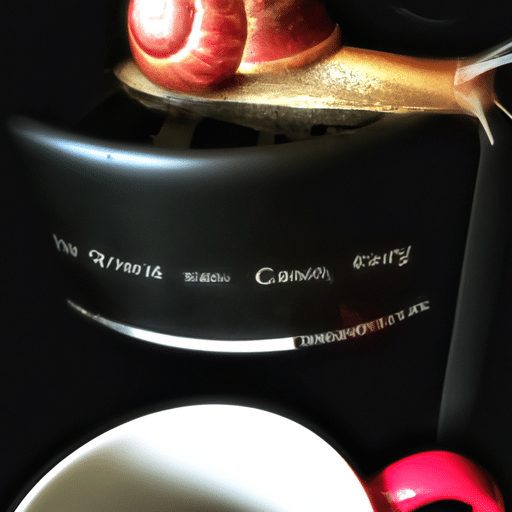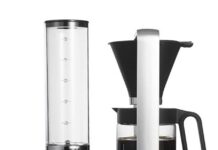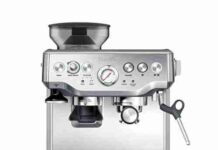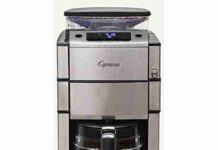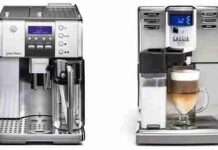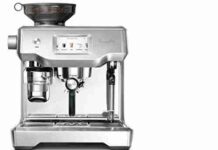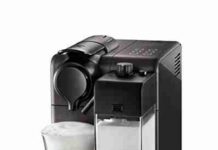Imagine waking up in the morning, eager to start your day with a fresh cup of joe, only to be met with the agonizingly slow pace of your coffee maker. We’ve all been there, feeling the frustration rise as we impatiently wait for that precious liquid gold to fill our cup. But fear not, dear coffee lovers, for there are simple yet effective tricks to expedite the brew time on your sluggish coffee maker. In this article, we will uncover the secrets to getting your caffeine fix faster, ensuring that you can savor that perfect cup of coffee without the tedious wait. So, grab your mug and let’s dive into the world of speeding up brew time on a slow coffee maker!
Choose the Right Coffee Grind
When it comes to brewing the perfect cup of coffee, the grind size plays a crucial role. Adjusting the grind size can significantly impact the brew time on a slow coffee maker. If you find that your coffee maker is taking too long to brew, it may be worth experimenting with a coarser grind.
Using a coarser grind allows for faster water flow through the coffee grounds, resulting in a quicker brewing process. This is especially important for slow coffee makers, as a finer grind can lead to clogging and longer extraction times. By opting for a coarser grind, you can help speed up the brew time and ensure a smoother extraction process.
Use Hot Water
Another effective way to speed up brew time on a slow coffee maker is by using hot water. Preheating the machine before starting the brewing process can help to reduce the time it takes for the water to reach the optimal brewing temperature. Simply run a cycle of hot water through the machine to heat up the internal components.
Additionally, boiling water separately and pouring it into the coffee maker can help speed up the brewing process. This ensures that the water added to the machine is already at the desired temperature, eliminating the need for the machine to heat it up. By using hot water, you can significantly decrease the brew time and enjoy your coffee faster.
Optimize Extraction Time
To speed up the brew time on a slow coffee maker, optimizing the extraction time is key. Increasing the steeping time allows for better extraction and can result in a bolder and more flavorful cup of coffee. By allowing the coffee grounds to steep for a longer duration, you can extract the desired flavors more efficiently.
Another option is to use a faster extraction process. Some coffee makers offer adjustable settings that allow you to choose a faster brewing method. This accelerates the water flow through the coffee grounds, reducing the overall brew time. By experimenting with different extraction times and methods, you can find the perfect balance between speed and flavor.
Clean and Maintain the Coffee Maker
Regular maintenance and cleaning of the coffee maker can contribute to a faster brew time. Over time, mineral deposits and coffee residue can build up in the machine, hindering water flow and slowing down the brewing process. Descaling the machine removes these deposits and ensures optimal performance.
In addition to descaling, it is important to clean the filter regularly. A clogged or dirty filter can impede water flow and prolong brewing time. By keeping the coffee maker clean and maintaining its components, you can help speed up the brew time and ensure a consistently delicious cup of coffee.
Pre-warm the Coffee Maker
Pre-warming the coffee maker is an effective method to reduce brew time on a slow machine. Running a blank cycle with just hot water before brewing your coffee helps to heat up the machine and brings it to the optimal brewing temperature faster. This eliminates the need for the machine to heat up during the brewing process, saving precious time.
Using a thermal carafe can also help to pre-warm the coffee maker. By pouring hot water into the thermal carafe and letting it sit for a few minutes, the carafe will absorb the heat and keep the brewing temperature stable. When it’s time to brew, transferring the hot water from the thermal carafe to the coffee maker will speed up the brewing process.
Consider a Different Brewing Method
If your current coffee maker consistently takes too long to brew, it may be time to consider a different brewing method. Two alternatives to explore are using a French press or trying an espresso machine.
A French press offers a straightforward and quicker brewing process. With a coarser grind and steeping the coffee in a container separate from the machine, you can achieve a full-bodied and flavorful cup of coffee in a fraction of the time.
On the other hand, an espresso machine provides a fast brewing method that extracts coffee under high pressure. With precise temperature control and shorter extraction times, an espresso machine allows for a quick and intense cup of coffee.
Upgrade Your Coffee Maker
If all else fails and your current coffee maker continues to be slow despite trying various methods, it may be worth considering upgrading to a new machine. Investing in a high-speed brewer can significantly reduce the brewing time and provide you with a delicious cup of coffee in minutes.
Alternatively, choosing a specialty coffee maker that focuses on speed can also be a great option. These machines are designed to brew coffee quickly without compromising on flavor. By investing in a coffee maker specifically designed for speed, you can enjoy a quicker brewing process and a satisfying cup of coffee.
Avoid Overloading the Coffee Maker
Using the right amount of coffee is essential to avoid overloading the coffee maker and slowing down the brew time. Follow the recommended coffee-to-water ratio for your specific machine to maintain optimal brewing conditions. Overloading the coffee maker with excessive coffee grounds can lead to clogs and a longer extraction process.
Consider brewing smaller batches if you find that your coffee maker consistently takes too long to brew. With a smaller amount of coffee and water, the machine can extract the flavors more efficiently, resulting in a faster brew time. By brewing smaller batches, you can enjoy your coffee quicker without sacrificing taste.
Ensure Proper Water Flow
Proper water flow is essential for a fast and efficient brewing process. If your coffee maker is struggling with slow brew times, it may be worth checking for any clogs that could be obstructing the water flow. This can include residue buildup or even a malfunctioning part.
Regularly cleaning the coffee maker and inspecting its components can help identify and remove any clogs. Pay particular attention to the water reservoir, filter basket, and the brewing mechanism. By ensuring a clear path for water flow, you can speed up the brewing process and enjoy your coffee sooner.
Adjusting the water pressure can also contribute to a faster brew time. Some coffee makers provide adjustable settings to control the water pressure during brewing. Experimenting with different water pressure levels can help optimize the brewing process and reduce the overall brew time.
Experiment with Temperature
Temperature plays a crucial role in the brewing process and can impact brew time as well. Experimenting with different water temperatures can help speed up the brewing process and achieve the desired flavors.
Try using different water temperatures to find the optimal range for your coffee maker. Some machines perform better with slightly hotter water, while others may brew more efficiently at lower temperatures. By adjusting the water temperature, you can potentially reduce the brew time and enjoy your coffee faster.
Implementing cold brew methods is another option to consider. Cold brew coffee is made by steeping coffee grounds in cold or room temperature water for an extended period, usually overnight. This method eliminates the need for hot water and the brewing process, resulting in a smoother and less time-consuming alternative.
In conclusion, there are several methods to speed up brew time on a slow coffee maker. By choosing the right coffee grind, using hot water, optimizing extraction time, cleaning and maintaining the machine, pre-warming the coffee maker, considering different brewing methods, upgrading the coffee maker, avoiding overloading, ensuring proper water flow, and experimenting with temperature, you can significantly reduce the time it takes for your coffee to brew. With a few adjustments and a bit of experimentation, you can enjoy a faster and more satisfying cup of coffee every morning.


